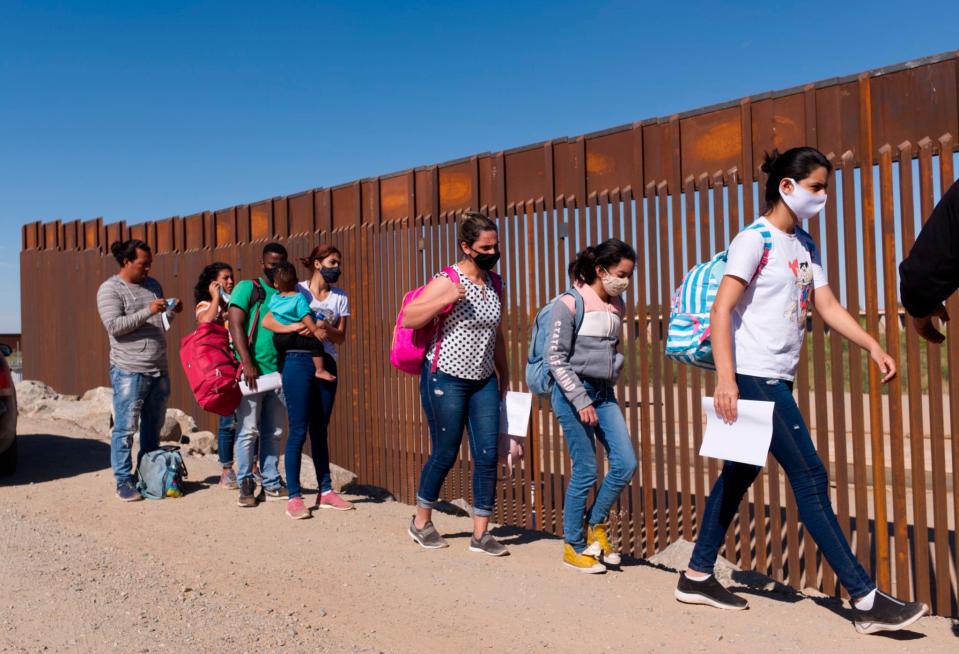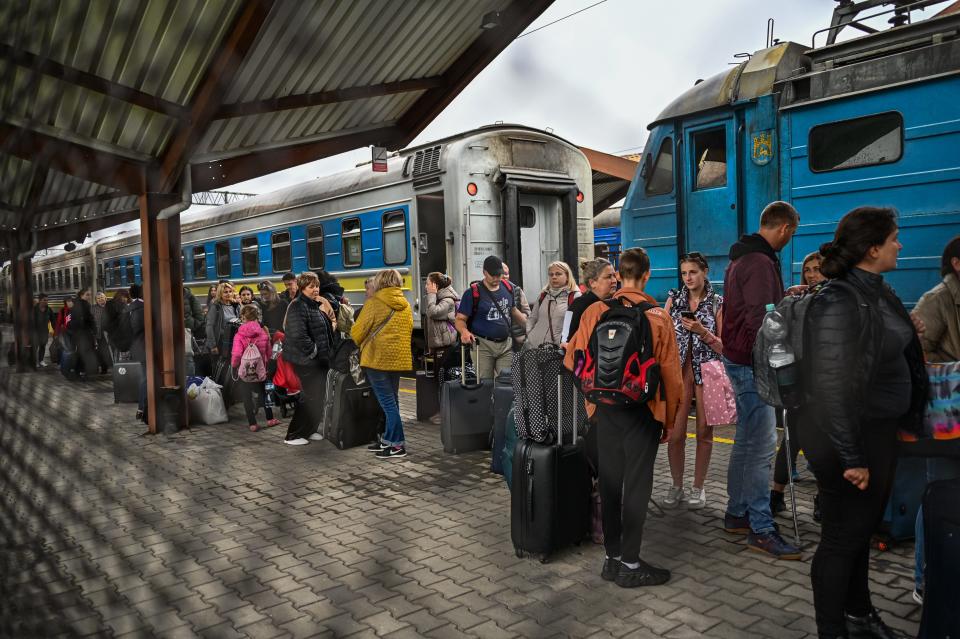Address root causes of forced migration, help migrants rather than scapegoating them
The phenomenon of animal migration — creatures small enough to fit in the palm of one’s hand, traveling thousands of miles to feed and procreate — is surely one of the most exquisite miracles of the natural world.
Monarch butterflies, weighing around half a gram, wing it 2,500 miles to over winter and then back again. Salmon swim to the ocean and then, years later, fight their way nearly 1,000 miles upstream against surging waters as part of their evolutionary programming to find a better place for their offspring.
Conservationists take measures to improve the survival rates of various migratory animals. They educate us about species decline, work to protect wetlands and sanctuaries, or lobby for ways to make flyways safer
Similarly, human beings, since recorded time, have been on a nearly constant move to improve chances for survival for themselves and their families.

Our feelings about human migrants, though, are not always as supportive. We raise barriers, establish quotas or exclude outright certain groups of people. Those who do successfully make the journey to safer ground often find themselves stigmatized, trapped in confusing bureaucracies, confined to ghettos, forced to endure second-class status or, in some instances, forcibly returned to their original destinations.
The United States has been deadlocked over migration for years. It is difficult to imagine compromise given how divisive politics has become.
There is a statue in New York Harbor nicknamed the “Mother of Exiles,” but in times of financial stress or political upheaval, migrants provide easy scapegoats for politicians who attempt to divert our attention from problems that drive human migration, notably war, famine, climate change, political suppression and vast inequality. Sadly, Gov. Ron DeSantis is one of the shriller voices inciting fear and hatred of those struggling to stay alive.
Some problems take mankind by surprise, but others are predictable. It seems likely that we are now experiencing only the tip of the iceberg when it comes to mass migration of human beings.
Five to 7 million people have fled from Ukraine since the Russian invasion. Syrians caught between warring despots are scattered all over Europe and the Mideast. Other daily horror stories — surges at our borders, multiple drownings, people roasting inside semi trailers, families forced into detention centers — will likely increase in the coming years. By a lot!

If that is to be our future, what would extending some humane measure of protection to humans forced to migrate look like?
Admittedly, few are ready to endorse totally free movement of people across the boundaries of what they have grown to believe is theirs alone. (On a micro scale, consider the blowback from Gainesville residents concerned about efforts to reduce or eliminate “exclusionary” zoning).
There are more productive ways to address the root causes of forced migration. Foreign aid might be specifically directed to improving schools, health care, infrastructure and governance in countries where such fundamentals of civilization are lacking or have failed.
More from Greg McGann:
Hungarian prime minister provides template for Florida Gov. Ron DeSantis
Personal experience builds understanding about transgender individuals
Even when they're not right, too many people looking for a fight
By expanding student visas could train emigres to learn, then return to improve their own countries. We could establish a program of paid internships for American students to spend time in developing or struggling countries to tutor, build roads or solar panels, or improve farming practices.
Companies should be encouraged to provide micro loans to help people in poorer countries build their own businesses. Our education systems and churches could structure curriculums to educate youngsters about the reasons for and plight of migrants, their contributions to society and humanity’s mission to care for each other.
Scapegoating the unfortunate only adds to their misery. Doing something about why so many are driven to leave where they are would help them and benefit us all as well.
Greg McGann is a Licensed Clinical Social Worker who lives in Gainesville.
Join the conversation
Letters to the editor present the opinions of readers on news stories and other pieces published by The Sun. Share your opinions by sending a letter to the editor (up to 200 words) to letters@gainesville.com. Letters must include the writer's full name and city of residence. Additional guidelines for submitting letters and longer guest columns can be found at bit.ly/sunopinionguidelines.
Journalism matters. Your support matters.
Get a digital subscription to the Gainesville Sun. Includes must-see content on Gainesville.com and Gatorsports.com, breaking news and updates on all your devices, and access to the eEdition. Visit www.gainesville.com/subscribenow to sign up.
This article originally appeared on The Gainesville Sun: Greg McGann: Help migrants rather than scapegoating them

